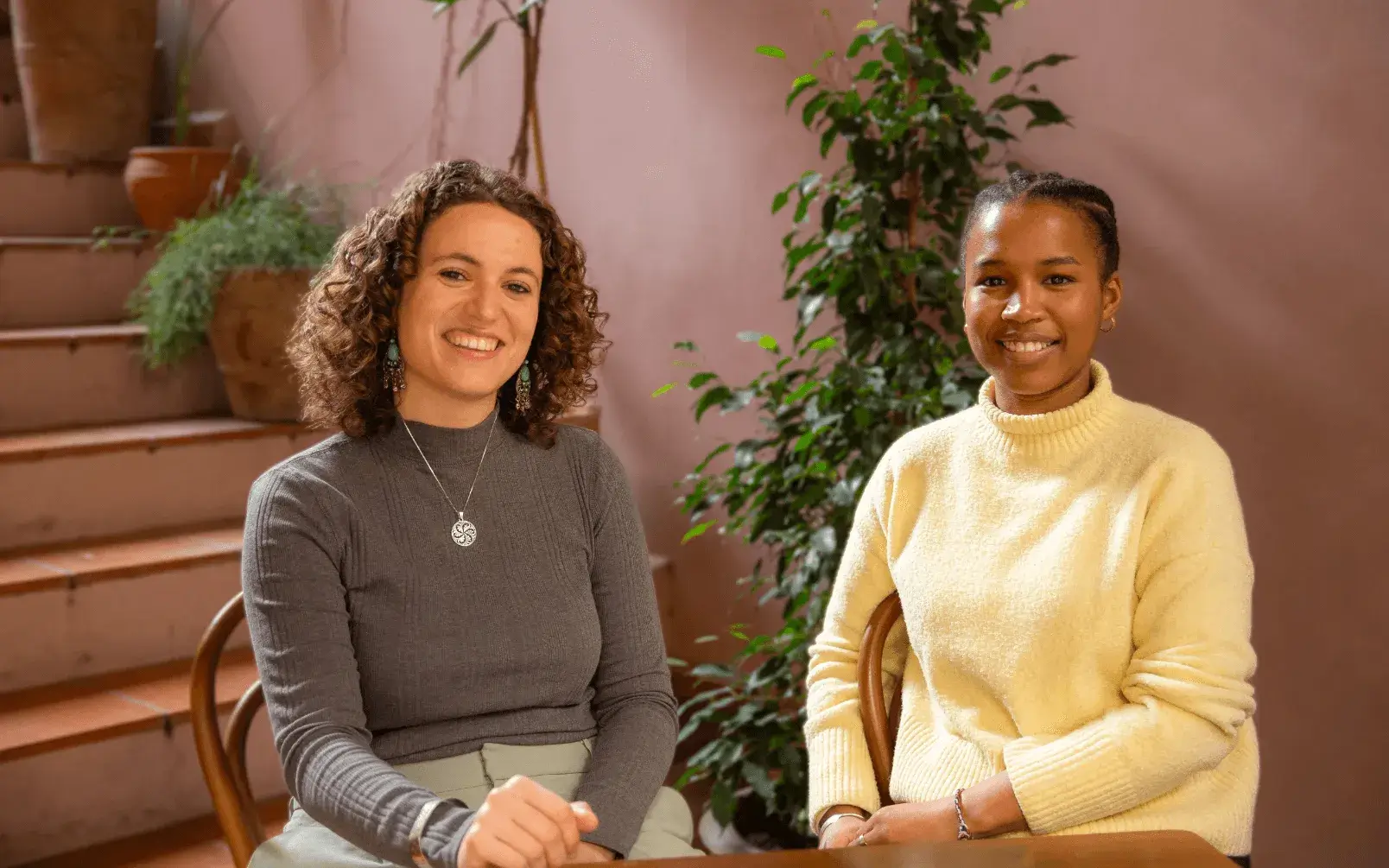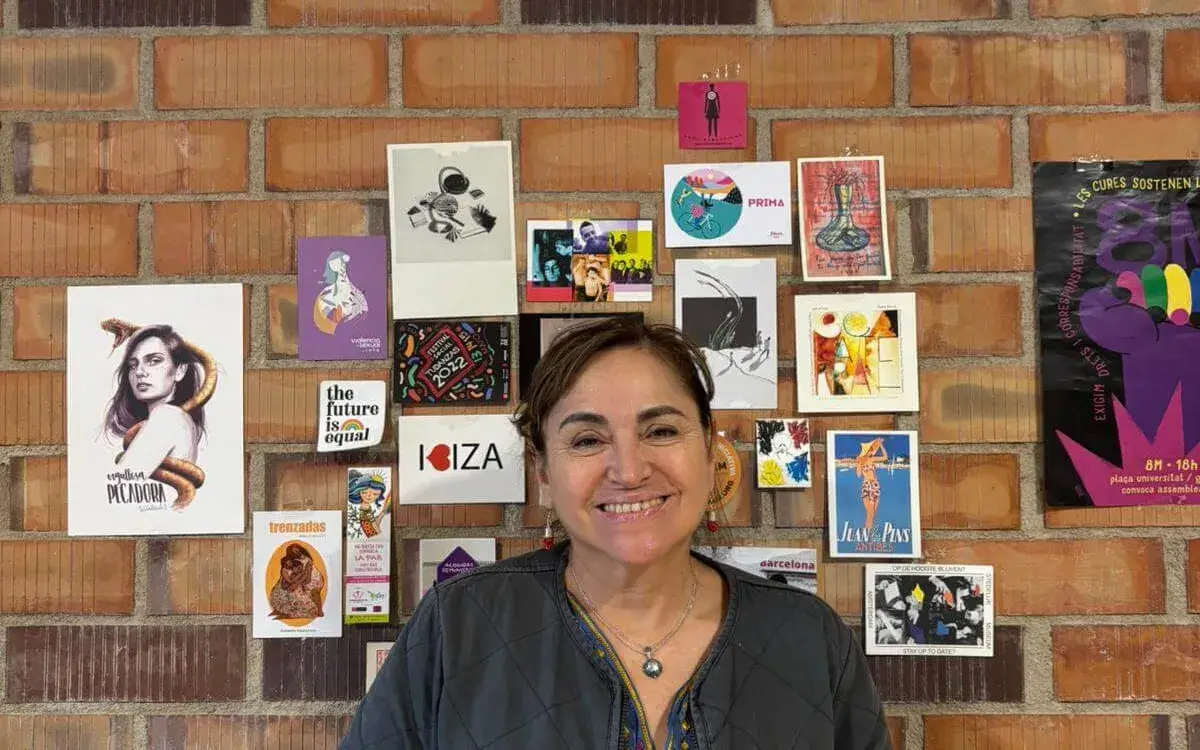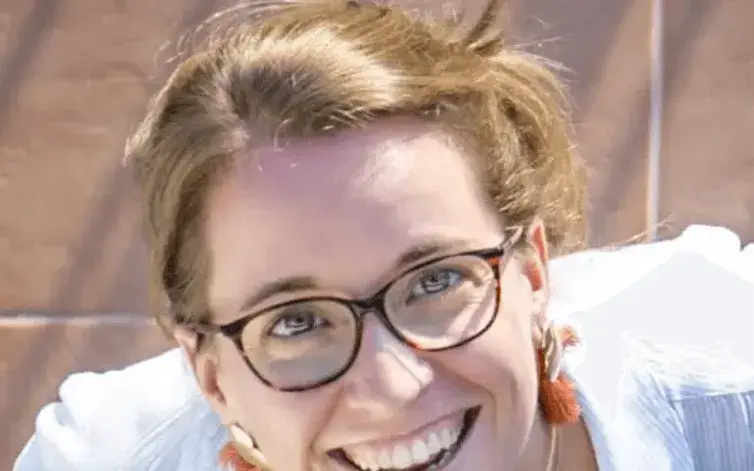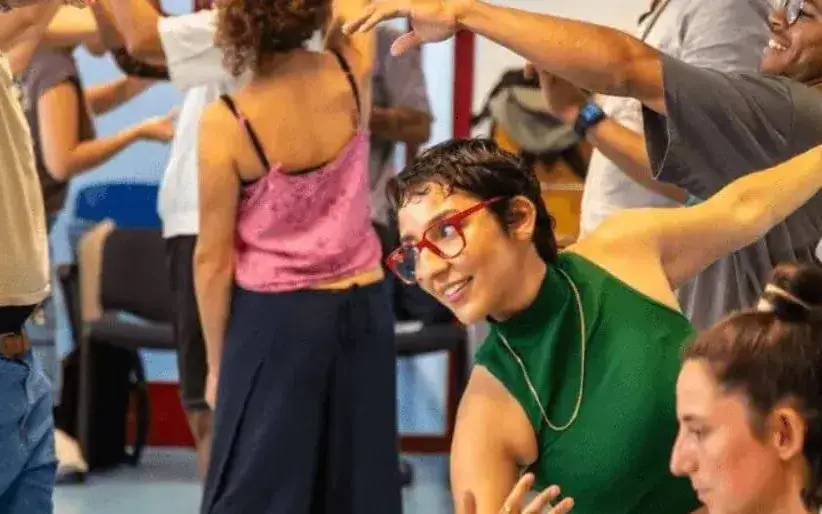Diana Rahmouni: “We want to promote unrecognized voices in the panorama beyond the simple anecdote”

The founders of Jaŋde Editorial explain their cooperative project, which aims, more than selling, to be a speaker for the least heard groups.
' Jaŋde ' means "reading" or "teaching" in Fula or Pulaar, the language of the Fulani ethnic group, present in the south of the Sahel, in West Africa, which today has more than 40 million speakers. This is the meaning of the name Jaŋde Editorial , a cooperative publisher in Catalan that wants to be the space for literature that is missing in Catalonia without knowing it.
The aim of this publishing house is to promote racialized voices or voices of migrant descent who are discriminated against by the sector. In addition, Jande also intends to translate established authors into Catalan that allow us to learn about other realities.
The founders of the publishing house, Aissata M'ballo Diao and Diana Rahmouni Audenis , explain to Xarxanet the birth, operation and purposes of this cooperative project.
Where did the idea of creating the publishing house come from? What were you missing that made you decide to start the project?
Aissata: Originally this was my final project for the Master's in Publishing at Pompeu Fabra University. I came up with it because I was missing works in Catalan that reflected certain realities, that were written by racialized people or people of migrant origin like Diana or me, and also works translated from the source. My tutor, Laura Huerga, the editor of Raig Verd , was the one who encouraged me to take it further, as there was no similar project. She also put me in touch with Diana, who was working with her at the time. When we met, we saw that we had similar concerns and we decided to take the project forward together.
Diana: I was doing an internship at Raig Verd, and I had started to develop an initial project based on this concern, and Laura, upon seeing it, told me about Aissata. When we met, despite having different personal backgrounds, we saw that we agreed on what we had been missing until then.
And how did you get started? Last year you launched the crowdfunding campaign. How has the reception been, what encouraged people to bet on your project?
A: We did a crowdfunding campaign for Goteo because setting up a publishing house requires a very large initial investment of money, because the return on sales is very long-term, and a significant initial capital was needed. In addition, the campaign was a good opportunity to make a first communication launch , to introduce ourselves and make ourselves known within the Catalan publishing sector and to begin to establish contacts and links with booksellers, libraries, potential prescribers and mediators... The truth is that the reception was very good, and we were able to reach the minimum economic goal.
We were welcomed with open arms in the sector , and we were able to network with other independent publishing houses that, without having a similar strategy to ours, are also publishing works by migrant authors translated into Catalan.
You have said in another interview that you are not just a publisher, but also a collective proposal.
D: Yes. There is an ideology and an important social action interest behind it . The goal is not just to create a product and sell it, but to generate conversation around these issues that concern us and give the opportunity and the speaker to certain groups that are not so listened to. In addition, for us it is very important to coordinate with people who are already active in the cultural field, especially with independent bookstores. In fact, part of the amount of our subscriptions goes to one of these establishments of the user's choice. We also try to participate as much as possible in activities and fairs linked to the migrant movement, and try to work with collaborators of racialized migrant origin to do the covers, the correction and in the future, why not, the translation.
A: One thing that has helped us to get a little bit of momentum is that from the beginning we were able to partner with Llegir en Català , an association of independent publishers in Catalan, or network with other small , independent or medium-sized publishers. It has helped us a lot to join forces with all of them, whether it is doing joint presentations with booksellers or going together on Sant Jordi's Day or the Catalan free week.
How do the proposals reach the publisher? By commission, open calls, do you go looking for them?
A: A bit of everything. First, as we had both been working at other publishing houses, we had contacts from various literary agents who were interested in the type of authors they represent. In fact, many proposals come to us directly from literary agents. At the same time, we also receive many unpublished manuscripts from people who are not represented by any agent, but who have found out about the existence of our publishing house; or we do it the other way around, and we go and find the authors ourselves. Similarly, we proactively search for classics from the global south that have not yet reached us in Catalan because the publishing houses have not considered them to be of commercial interest.
D: So that this whole strategy is understood, we have two lines of work : the translation of international works into Catalan, and the promotion of voices that are writing here in Catalan or Spanish. This is the most activist work we do.
You said somewhere that you were thinking of publishing only six or seven titles a year. Why did you choose this way of working? What kind of support do you give to the authors? Or is it, perhaps, an editorial policy?
D: Well, there are many issues here, but one of the reasons is that the project makes no sense if we can't accompany the books and authors we publish. There are cases of publishers with a greater presence that publish a book of this style because perhaps it has a lot of followers behind it and then they forget about it. What we want is to promote voices that are not recognized in the panorama, and go beyond the simple anecdote. This requires time, care.
There is also the economic and structural issue. The two of us do everything . Yes, we work with external people at the level of layout and correction, but we do the bulk of the work ourselves, and it would get out of hand. However, there is also a minimum because important subsidies in the world of books require at least six publications a year. So it is a question of playing in this balance between interest, support and economic structure .
Is there already a defined editorial style?
A: No. The main and only requirement we have is that we only publish racialized or migrated voices , both men and women, both local authors in Catalan or Spanish and translations from abroad. Apart from that, the format is diverse . We have a collection that is narrative, poetry and theater, and another one of non-fiction, and next year we will probably start a new one of fantasy genres. And in terms of content, the theme does not have to be focused on anti-racism or migration. We encourage diversity , so that authors can explore other themes and other genres that interest them, although their works will probably have this element because they are both crossed by race and migration.
D: We could say that this is the Jaŋde style , being able to demonstrate that from the voices of migrant and racialized origin in our country and around the world, many things can be discussed , that the world of imagination is very broad and everyone fits in. We already see it in the literature of white voices: just because a novel by a woman who talks about her pregnancy has been published does not mean that we have already read all the novels about pregnancy, but rather that each voice is different.
You said that you had a future goal of opening up a new line of fiction topics. What other future challenges or intentions do you have for the coming years?
A: Yes, we would like to establish ourselves as a leading publisher, to establish ourselves within fiction and adult fiction in Catalan, and for many authors to be attracted to our catalogue. Also, in the long run, we want to expand the type of audience we are targeting so that the project is sustainable over time, and that more projects with similar positioning and objectives come along, and that other independent publishers are more aware when publishing.
D: On a more practical level, one of our goals now is to get people to sign up to the project , because that is what gives us the most support, for us and for what we defend, while also fitting in with the cooperative intention behind it. We need to find ways to ensure the continuity of the publishing house, because the world of independent books in Catalan is at a bit of a low point, it is not the network we found a few years ago. Our books are arriving, but it is difficult.
What books would you recommend from your catalog as reading for this summer?
D: ' I'm a Fan ', the debut book by Sheena Patel , a writer of British origin. It's a very fresh work on a very sweet subject, social networks, and narrates all the sexual-affective obsession and stalking that arise from all the adventures and misadventures that the protagonist has had with a man and his lover, and how she channels it. She does it with very short chapters, with a very up-to-date language, and this makes it funny and very powerful at the same time.
Another one I would recommend is ' It's Not So Radical ', the first essay we've published. I think it's quite timely now that we seem to be remembering the climate emergency because of all these fires and rising temperatures. It's by Mikaela Loach , a British-Jamaican author who does an analysis from an activist perspective, portraying realities that are not just Western. A position that is also optimistic, because it tells us that even if in two years the temperature has risen two degrees, there will still be struggle.






Add new comment